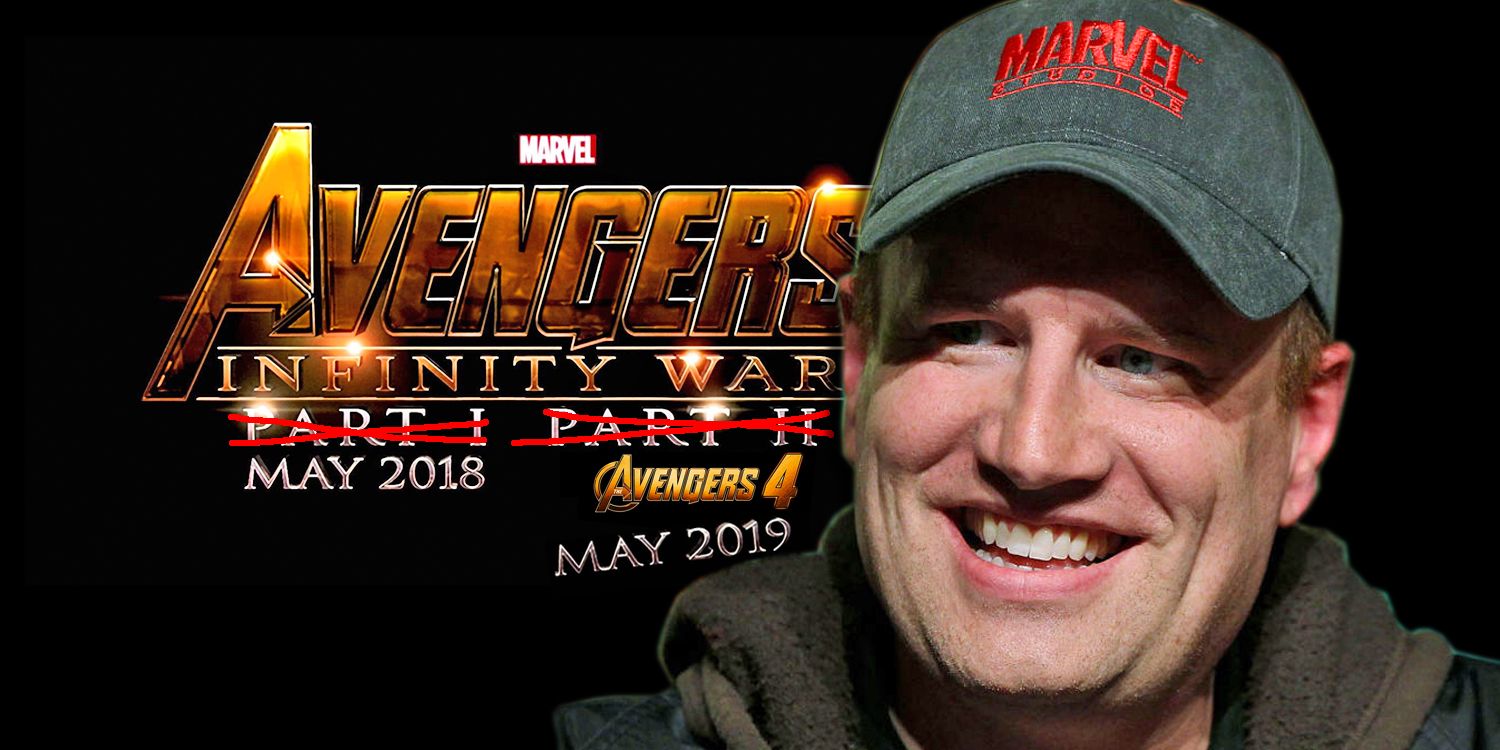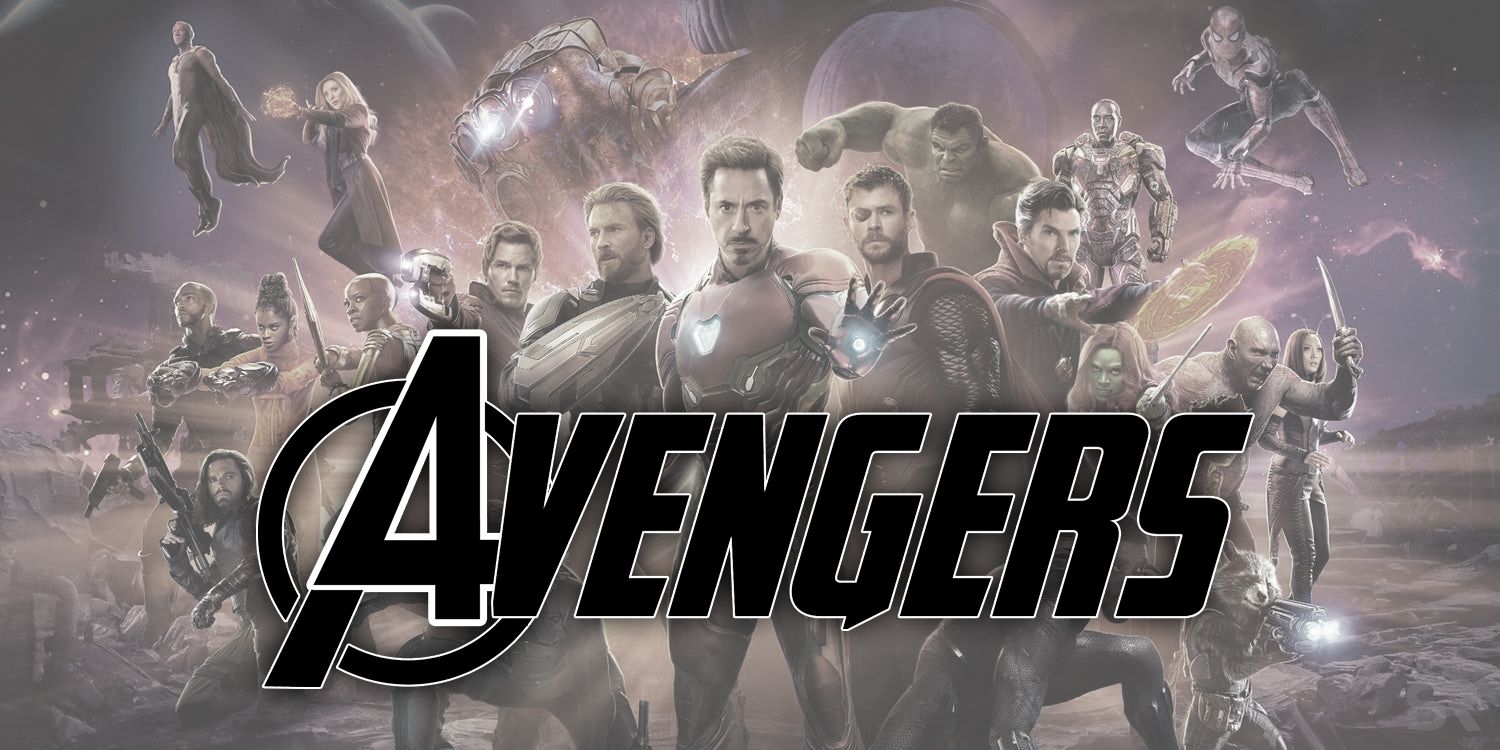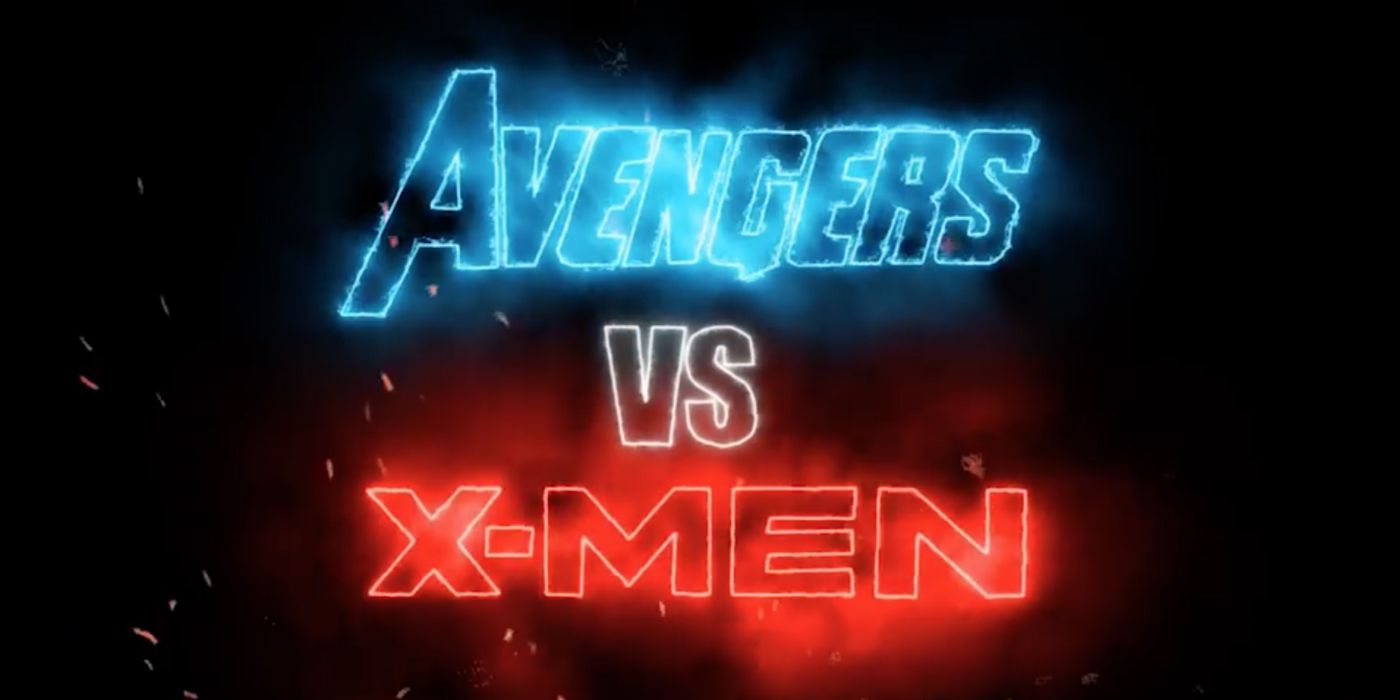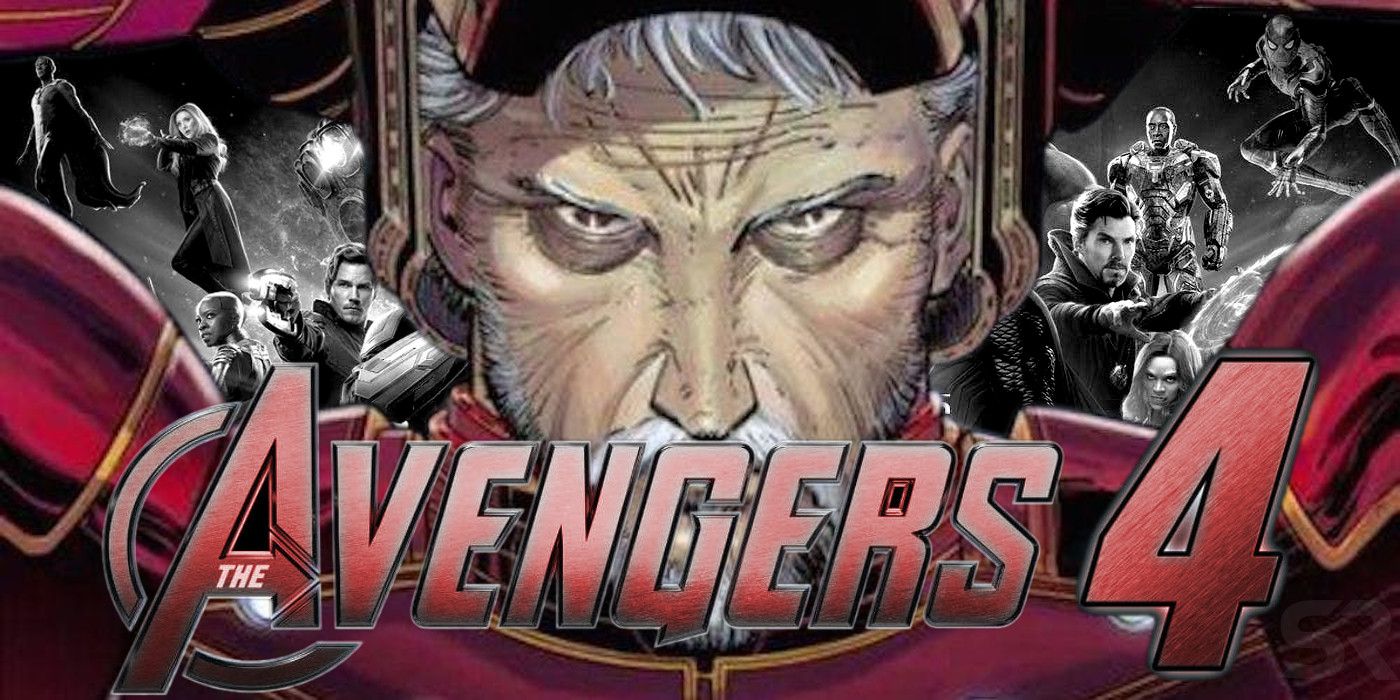Marvel is known for their tight-fisted approach to marketing, but Avengers: Infinity War - Part 1 may be the greatest trick yet. Selling a movie is as important as the making - what's the point of having something great if nobody will watch it? - and over the past ten years, Marvel Studios has become king of the game. The shared universe idea intrinsically builds investment in the other connected films, but through fine-tuned secrecy and long-lead releases, they've made each release an event in itself. But that's nothing on what they pulled over the course of four years with Infinity War, actually correcting a big mistake.
As the world now knows, Avengers: Infinity War ends on a startling cliffhanger where villain Thanos, despite the best efforts of the heroes, wins, collecting all six Infinity Stones and snapping his fingers to wipe out half of all life in the universe; a bunch of favorite Avengers vanish into clouds of dust and the Mad Titan sits on his porch smiling. It's a startling finale, not just because the likes of Spider-Man and Black Panther are now dead, but because it goes against all conventional wisdom. The cliffhanger came out of the blue, greatly shifting the perception of next year's Avengers 4 in a single click.
Related: Avengers: Infinity War's Ending Was Very Different In The Comics
Of course, this was actually obvious if you were paying attention. When it was first announced, the film just released was only the first half: in late-2014, Kevin Feige confirmed the MCU's entire Phase 3 slate, which culminated with Infinity War - Part 1 in May 2018 and Infinity War - Part 2 a year later. From that point, it was clear Infinity War was a two-part story of intrinsically, narratively linked films. Until it wasn't.
As Infinity War came together, suddenly all involved at Marvel - from Kevin Feige to directors the Russo brothers to screenwriters Markus and McFeely - were keen to make clear that Avengers 3 & 4 were in some fundamental way disconnected. By April 2016, we were told the two films were "very different" and a month later it was confirmed the titles would change, with it subsequently clarified that despite "cross-pollination" the stories were different. Even as the films entered their back-to-back production, the company line was that we were dealing with two very different beasts.
- This Page: The Real Reason For Infinity War's Title Change
- Page 2: How Marvel Tricked Audiences Into Thinking Part 1 Was The End
- Page 3: The Problem Facing Infinity War - Part 2
The Real Reason Infinity War Lost Part 2
Now, many aspects of that 2014 plan have changed - Inhumans was removed from the slate, Spider-Man: Homecoming and Ant-Man & the Wasp were added, and several movies shifted around - but perhaps the most important is the dropping of "Part 1" and untitling of Avengers 4 (Marvel doesn't even give it a number). All of the others are big, hefty plan adjustments with a clear purpose - adding or removing a movie - whereas here we're dealing with hushed semantics - and that's telling.
To understand what happened, it's important to note what happened between Infinity War - Part 1/2 being announced and the promise being rescinded. When Feige made his announcement, The Hunger Games: Mockingjay - Part 1, the first half of that series' own finale, was just a month from release and under a wave of immense hype. However, while it did admirable numbers (if not matching its predecessor, Catching Fire), Part 2 a year later was the lowest grossing film in the franchise by a margin. Hunger Games' problems came primarily from fracturing the single narrative of a book (one regarded as the weakest of the trilogy), but it was clear the financials were impacted by wider perceptions of two-parters. This was seemingly confirmed when The Divergent Series: Allegiant, a retitled Part 1 of another third book stretch, bombed so badly the series was stopped in its tracks. Add in the diminished returns to the extended Hobbit trilogy and a clear image was painted: audiences weren't comfortable paying multiple times to see fragments of a story. This was even, somewhat, echoed with Avengers: Age of Ultron, which existed at once standalone and in a larger narrative much to audience frustrations.
Related: Every Phase of the MCU Has Been Better Than the Last
While telling a story over two movies could pay dividends - see Harry Potter and the Deathly Hallows - it was clear that general audiences were wizening up to the trick. Marvel was by this point a powerhouse almost akin to heyday Potter and didn't have the source material stretch issue, so it's entirely possible Infinity War could weather it, but considering the scale of the undertaking - in terms of story, budget and production - that was a risky gamble to make. Thus, tact changed.
There is, also, the unavoidable spoiler advantage worth considering. Thanos is a character known primarily for his finger snap, and if you're going into a two-part story where that's his motivation, it's not hard to make the leap that this is the point of story divergence (even though the act in the comic isn't a cliffhanger, it's often taken as such in the popular consciousness). Keeping what became Avengers: Infinity War as Part 1 of 2 invites far too much confidence in what is designed as a shocking finale. And that's where the change goes from damage control to something truly genius.
Page 2: How Marvel Tricked Audiences Into Thinking Infinity War - Part 1 Was The End
The Infinity War Name Change Confused Fans
What's clear now is that the plan on Feige's mind when he first uttered the words "Part 1" is very similar to what's played out: Thanos wins ahead of a rematch in 2019. However, due to a tight lock on internal machinations, the title change created an alternate narrative; although Marvel never actively suggested anything like this, the loss of Part 2 and secrecy over why made many believe that something had actually changed in the development of Infinity War that warranted wider alteration.
This effortlessly addressed those spoiler concerns while also leading to theories that Avengers 4 was its own story. Secret Invasion became popular after the Skrulls were confirmed for Captain Marvel, but if you name any major arc from the past three decades you can bet it was speculated intensely. There were even expectations Avengers 4 would mark the X-Men's arrival to the MCU, legal logistics be damned.
Read More: Don't Expect To See the X-Men in the MCU Until At Least 2021
All of this was, obviously, not the case, but what's important is that it kept all eyes mulling over impossibilities, rather than turning their eyes on what Avengers: Infinity War itself contained. And while Marvel didn't fuel this directly, they did tell one sneaky white lie.
Avengers: Infinity War Was Sold As The End
"An entire universe. Once and for all." Avengers: Infinity War's tagline may be a little confusing written out rather than flashed on text cards in trailers, but it summed up the message of the marketing clearly: this was the end. Every piece of advertising focused on the massive final showdown between Earth's Mightiest Heroes and Thanos, and all speculation was led down the track of Iron Man or Captain America biting it. Fans thought the marketing was misleading with altered trailer shots and removed characters, but the real trick was making everybody think that this was the standalone finale - offsetting those Part 1 concerns - when it was in fact just the start of the culmination.
This isn't too dissimilar to what Warner Bros. did with Harry Potter and the Deathly Hallows, with the first trailer using footage from both parts of the movie to ensure that the small-scale Part 1 had the inescapable epic sense. However, there we were dealing with a linear franchise already six films deep and so the intent of a two-parter was clearly established. This was something more.
The entire marketing campaign was the ultimate end-point of the decision to err away from Hunger Games and Divergent's mistakes: Avengers: Infinity War got the box office of an epic finale despite being the penultimate entry. It, of course, helped that the film is very much its own thing - even with the cliffhanger ending, the film is a complete story of Thanos' quest for victory - meaning audiences were more open to the trick, but making Avengers 4 feel disparate was essential for the record-breaking run.
Page 3: The Problem Facing Infinity War - Part 2
Avengers 4 Has A Death Problem
All that praise laid down, doing such a bold switch on audiences on the second-to-last film comes with risks for the real finale. Immediately, a lot of the ending hype has been spent. Avengers 4 will undoubtedly be sold on it being the last ride for many of the key heroes, yet while few were upset by the subterfuge performed by Marvel, there'll be some skepticism about true finality. Indeed, Infinity War exists in a landscape where no Marvel movie after 2019 is announced and so does feel like a late-day entry, whereas by this time next year at least the 2020 MCU movies will be in known development.
Related: Marvel Already Has The Perfect Line-Up For After Avengers 4
Of course, Avengers 3's quality and reception marginalizes that concern. The real barrier is the deaths. For months leading up to Avengers: Infinity War, the same people who'd pulled the Part 1 switch-then-bait were also promising deaths and that they would be permanent - sly fuel to the Stark or Cap theories - something they've continued afterward. And here's the problem. Obviously, no director, writer or producer is going to spoil or undo the ending of a movie still playing in theaters, but all involved are holding militantly to the notion that Infinity War's deaths are permanent when that just can't be the case.
Loki and Heimdall can stay dead, sure, but there are easy get-outs for Gamora and Vision, while the victims of the snap are sure to be resurrected (at the very least, the Guardians, Spider-Man and Black Panther all must return for solo movies, and it's not really an avenging if the villain's entire plan hasn't been undone). You have a situation where the filmmakers are stepping beyond simple misleading statements, and the majority of the audience knows it.
How Can Marvel Market Avengers 4?
Whereas for Avengers: Infinity War the trick was enabled by a greater sense of mystery about the overall purpose of the project, half the secret is out for Avengers 4, and the marketing tact must adjust to account for it. The campaign must decide early on what's a spoiler and what isn't and stick to it militantly. Uncertain terms leading to unclear narratives have hurt the likes of Batman v Superman and The Amazing Spider-Man 2, and while Avengers 4 is sure to be more crowd-pleasing than either, at this level anti-hype is a failure.
The other movies in many ways force Marvel's hand. Ant-Man & the Wasp and Captain Marvel being set before Thanos' snap and the films inhabiting different areas of the MCU means they roll pretty easily, but when it comes to what's next, issues are clear. Spider-Man 2 releases less than three months after Avengers 4, and considering it's a Sony picture, can't be subject to the same restrictions. The same goes for Guardians of the Galaxy Vol. 3, which is likely to start filming in 2019 before most of the vanished actors are brought back.
Read More: Spider-Man Has A Superman Problem After Avengers: Infinity War
Essentially, Marvel almost has to admit that the finger snap was a bust and will be reversed straight up, mainly so they can include their future A-listers in the marketing; starting out with a teaser focused on the OG heroes and making clear it's their film, then segueing into the bigger scope would be fitting - and they can still keep the method of rescue a closely-held secret. Deflating as that sounds, it wouldn't really be that damaging. While there's certainly an argument to be made that knowing dead characters will be back robs Avengers 3 of some of its emotional weight, the actual sense of permanent loss wasn't the point of Infinity War's ending: it was more about Thanos' ultimate victory.
-
Marvel's pulled a careful backtrack with Infinity War, but now they need to go all in with Avengers 4.
All this said, however, it may not really matter how the film is marketed: from this vantage point, with its predecessor one of the biggest release ever, the film is a sure-fire success, spoiler or no. Avengers: Infinity War the best trailer they could have asked for.









